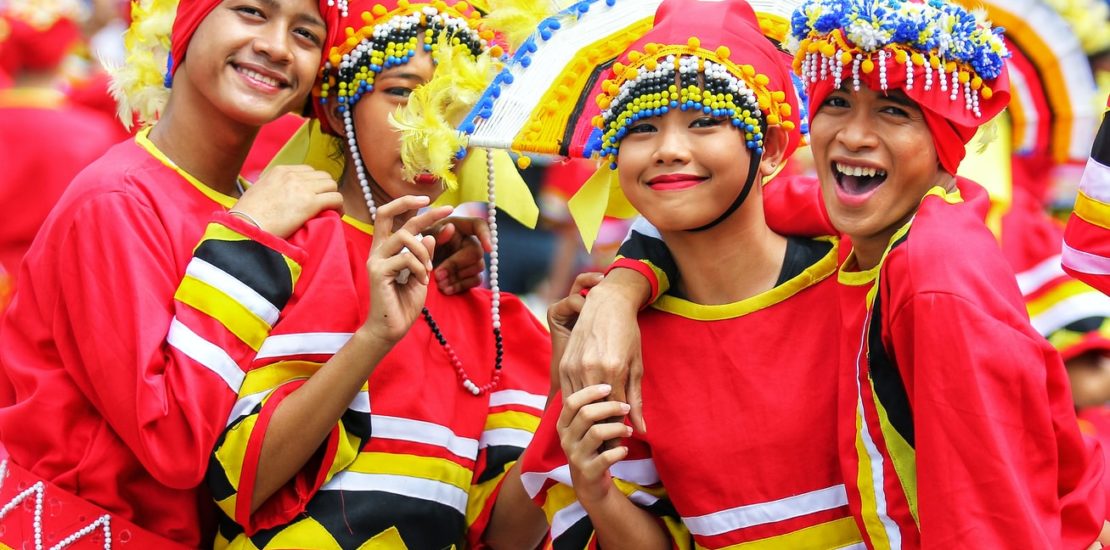Ever wonder what other cultures do for Christmas and how do they cope with traditions when residing in another country? This article aims to provide a glimpse into how Filipinos celebrate Christmas in a non-Christian country.

Christmas is Japan’s version of Valentine’s Day, with Christmas Eve being one of the most romantic days of the year. It is a time for friends and couples to get together and celebrate. Given there aren’t many Christians in Japan (about 1% of the population), Christmas is more of a celebration than a religious holiday.
The Definition of Christmas in the Philippines
Meanwhile, the Philippines boasts of being the only Christian country in Asia, where more than 86% of the population is Roman Catholic (the largest of the three branches of Christianity). It is understood that Christmas is the most important holiday of the year in the Philippines, with Christmas carols and decorations popping up as soon as the -ber months arrive. Don’t be surprised if Christmas trees and lights are displayed as early as September or October.
Christmas in the country is more of a family affair and is celebrated beyond Christmas Day. Families visit the church, hold multiple gatherings, and ensure that everyone in the household celebrates over food, music, games, and gifts.
The Filipinos’ Love for Festivals
It must also be pointed out the Filipinos love to celebrate and hold festivities in general. Whether it’s a historical or religious event, a bountiful yield of crops, or a delicacy that a particular place is proud of – there are countless festivals held all over the archipelago. After all, the Philippines is dubbed as the “land of festivals,” because they know how to bring culture and fun together.
It doesn’t matter where they might be in the world; once you have a Filipino community, expect a welcoming celebration of their culture and traditions
It doesn’t matter where they might be in the world; once you have a Filipino community, expect a welcoming celebration of their culture and traditions. In Japan alone, there are an estimated 282,798 Filipino residents as of December 2019, according to the Ministry of Justice statistics of foreign residents. Numerous Philippine celebrations are held annually in the land of the rising sun, as the Filipinos aim to share their festivals with the world.
Imagine bringing all of that music, dance, color, and food (a lot of it) into one festival in particular, and you have the annual Philippine Festival Japan, which has been going on since 2012. It is usually a two-day event usually held towards the end of the year when festivities are at their peak.
The most recent Philippine Festival Japan took place from November 30 to December 1, 2019, at Yoyogi Park, Tokyo. Sadly, due to the coronavirus pandemic, this year’s festival has been canceled.
Filipino Christmas Traditions Continued in Japan
Beyond the festivals, the Filipino community in Japan do not miss celebrating Christmas their traditional way. They continue to visit the church, like the Iglesia Ni Cristo (INC), an international Christian religious movement and the largest indigenous Christian church in the Philippines. The INC has over 28 branches in Japan, located from Sapporo to Okinawa.
Filipinos in Japan also get together with friends and loved ones to celebrate the religious holiday. They uphold traditions over a prayer ritual, hearty meal, games, and gift-giving. The family might not be complete for the holidays, but not much is missing when it comes to remembering what Christmas is all about.

Filipinos married to Japanese also celebrate Christmas together, the former sharing the holiday spirit with their spouses. Some are open to it and have embraced the tradition as their own, while others prefer to continue celebrating it the Japanese way.
Christmas Amid the Coronavirus
We can already expect that Christmas won’t be the same this year, regardless of tradition, due to the pandemic. However, this fact should not hinder anyone from celebrating the holidays while practicing safety measures. Filipinos who can’t be home for Christmas have already scheduled a family reunion via Zoom or Facebook Messenger.
It might not be as intimate or fulfilling as the usual family gathering, and there could be technical difficulties such as poor internet connection. Still, it will bring everyone close enough to that warm Christmas feeling spent with loved ones. We have technological advancement to thank for closing the gap on distance. They can even join in on the games or indulge in the Christmas salu-salo (feast gathering) at the same time with everyone.

Let’s not forget the gifts, which can be sent in advance through Lazada or Shopee (the two most popular online shopping platforms in the Philippines). There are also many ways for Filipinos to send Balikbayan boxes of goodies back home through courier services. This gesture allows family members to open something from someone special located over 3,000 km away.
Others could also set a Christmas get-together with those from the Filipino community and celebrate the special day with friends. A quick look online shows many are already getting ready for the holidays. Facebook buy and sell groups that cater to the community have begun selling Christmas favorites.
You can book your order of lechon (suckling pig), hamon (Christmas glazed ham), bibingka (sweet dessert made of rice), leche flan (caramel custard or purin), or pancit Malabon (a stir-fried noodle specialty from Malabon City). Various sellers are offering these delicacies online, which could be delivered just in time for Noche Buena (Christmas Eve).
Christmas is never complete without the pine trees and jingling bells. Fortunately, many stores in Japan are already selling Christmas trinkets. Head on over to Francfranc for a wide variety of holiday decorations or to IKEA, Amazon Japan, Toys r Us, or Nitori Japan for a Christmas tree. The latter are typically sold towards the end of November until December and can range from 3,999 JPY all the way up to 50,000 JPY for a real tree, which is sold at high-end stores like National Azabu Supermarket in Hiroo, Minato-Ku.
Filipinos are known to be resilient. You can expect that regardless of the current situation, workarounds have been set to uphold the traditions passed down across many generations. Christmas is a time celebrated religiously by the Filipino community. The spirit of giving and enjoying the holiday with family and loved ones will always accompany the Filipino community in any country.



